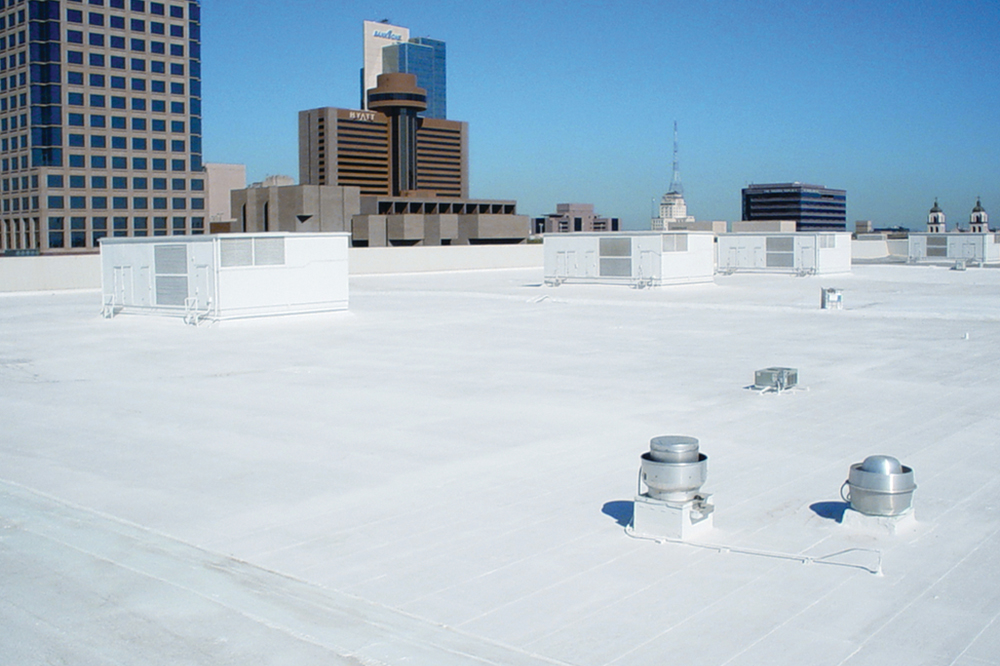
Key Considerations When Retrofitting Your Commercial Roof in DFW

Introduction: The Importance of a Solid Roof
In the dynamic world of commercial real estate, the roof is often an overlooked aspect that plays a crucial role in the integrity and functionality of your building. Whether you're managing a bustling shopping center, a serene office complex, or an industrial warehouse, your roof serves as the first line of defense against the elements. Retrofitting your commercial roof can enhance its lifespan, improve energy efficiency, and provide better protection against leaks and structural damage. In this article, we delve into Key Considerations When Retrofitting Your Commercial Roof in DFW, ensuring you have all the information needed to make informed decisions.
Understanding Retrofitting: What Does It Mean?
What is Roof Retrofitting?
Retrofitting refers to upgrading existing roofing systems with new materials or technologies to improve performance and longevity. This process may involve adding insulation, installing new membranes, or incorporating advanced drainage solutions.
Why Retrofit?
Unique Gazebo Roof Design Ideas for Dallas Properties- Enhanced Efficiency: By improving insulation and sealing, retrofitting can reduce energy costs significantly.
- Extended Lifespan: A retrofitted roof can last longer than its original counterpart.
- Increased Property Value: An upgraded roof can enhance the overall value of your property.
The Role of Commercial Roofing Companies
When considering a retrofit, it’s essential to partner with reputable commercial roofing contractors like SCR, Inc. General Contractors in DFW. Their expertise ensures that every aspect of the retrofit is handled professionally.
Key Considerations When Retrofitting Your Commercial Roof in DFW
Assessing Current Roof Condition
Before diving into any retrofitting project, it’s vital to assess the current condition of your roof. Look for signs of wear and tear such as cracks, leaks, or sagging areas.
Signs You Need a Roof Assessment
- Water stains on ceilings
- Visible cracks or bulges
- Frequent leaks during rain
Choosing the Right Materials
The materials you choose for retrofitting play a significant role in durability and performance. Options include:
- TPO (Thermoplastic Olefin): Known for its reflective properties.
- EPDM (Ethylene Propylene Diene Monomer): A tried-and-true option for flat roofs.
Comparative Table of Roofing Materials
| Material | Durability | Cost | Energy Efficiency | |---------------|------------|--------|-------------------| | TPO | 20 years | Moderate | High | | EPDM | 25 years | Low | Moderate | | PVC | 30 years | High | Very High |
Evaluating Structural Integrity
Before beginning any retrofit work, ensure that your building's structure can support additional weight from new materials or insulation. Consulting with structural engineers may be necessary.
Energy Efficiency Upgrades
Integrating energy-efficient solutions during retrofitting not only benefits the environment but also leads to significant cost savings.

Common Energy-Efficient Solutions
- Reflective roofing membranes
- Insulation upgrades
- Green roofs with vegetation
The Importance of Local Climate Considerations
Weather Patterns in DFW
Dallas-Fort Worth experiences diverse weather conditions from scorching summers to icy winters. This variability must be factored into your retrofitting plans.
Impact on Roofing Choices
When selecting roofing materials and designs:
- Choose materials resistant to heat and UV exposure.
- Ensure proper drainage systems are included to handle heavy rains.
Assessing Cost vs. Long-Term Benefits
Understanding Initial Costs
While upfront costs may seem daunting when retrofitting your commercial roof in DFW, consider these investments as long-term savings opportunities.
Breakdown of Potential Costs
Calculating ROI
Evaluate potential returns by estimating energy savings over time against initial investment costs.
Choosing a Reliable Commercial Roofing Contractor
Selecting a trustworthy contractor is critical for successful retrofitting projects. Here are key factors to consider:
Experience and Expertise
Look for contractors with extensive experience specifically in commercial roofing services. SCR, Inc., known as one of the leading commercial roofing companies in DFW offers proven expertise.
Licensing and Insurance
Always verify that contractors are licensed and insured to mitigate risks during construction.
Emergency Tarping: A Temporary Solution
Sometimes immediate repairs are necessary before comprehensive retrofitting can commence—this is where emergency tarping comes into play.
What is Emergency Tarping?
Emergency tarping involves covering compromised areas with waterproof tarps until more permanent repairs can be completed.
Benefits of Emergency Tarping
- Prevents further water damage
- Provides temporary protection at minimal cost
Flat Roofing Systems: Pros & Cons
Flat roofs are common among commercial buildings but come with their own set of challenges and advantages when considering retrofits.
Pros:
Cons:
Regulatory Compliance & Permits
Understanding local building codes is vital when planning your retrofit project in DFW.
Navigating Building Codes
Consult local regulations regarding roofing materials and installation practices before commencing work to avoid costly fines or rework later on.

Scheduling Your Retrofit Project
Timing plays an essential role in any construction project; therefore, proper scheduling should not be overlooked during retrofit planning.
Best Seasons for Roofing Projects
In DFW:
- Spring & Fall provide optimal weather conditions for roofing work.
Maintaining Open Communication with Your Contractor
Clear communication between property owners and contractors fosters trust and ensures that projects run smoothly without unexpected surprises along the way.
Tips for Effective Communication
FAQs about Retrofitting Commercial Roofs in DFW
Q1: How often should I consider retrofitting my commercial roof?
A1: It’s advisable to assess your roof every 5–10 years depending on material type and local climate effects.
Q2: Can I stay open during my commercial roof retrofit?
A2: Most contractors will work around business hours; however, some disruptions may occur depending on scope size—discuss this with your contractor beforehand.
Q3: What are some red flags indicating I need immediate repairs?
A3: Leaks during rainfall, visible sagging areas on ceilings/walls, or extreme temperature fluctuations inside indicate urgent repairs are necessary before full retrofitting can begin!
Q4: Is flat roofing suitable for all types of businesses?
A4: While flat roofs offer space efficiency, they require careful design consideration due to drainage concerns—consult your contractor about suitability based on business needs!
Q5: How do I determine if my building qualifies for energy-efficient tax credits after retrofitting?
A5: Speak with a tax professional familiar with local incentives related specifically to energy-efficient improvements made during renovations like roofing upgrades!
Q6: Is it possible to install solar panels on my newly retrofitted roof?
A6:** Absolutely! If structurally sound enough post-retrofit—consult both solar installers & commercial roofing professionals about best practices ensuring safe installation without damaging underlying systems!
Conclusion
Retrofitting your commercial roof in DFW presents an opportunity not just for repair but also enhancement—both functionally regarding efficiency while positively impacting property value too! With numerous considerations involved—from choosing appropriate materials down through understanding regulatory requirements—it pays dividends investing time upfront learning how best approach each step along way toward achieving durable results! Partnering with experienced teams like SCR Inc., General Contractors provides peace-of-mind knowing projects handled expertly throughout entire process! So why wait? Begin planning today—
Your future self will thank you later!
This article provides comprehensive insights into key considerations when considering a retrofit project while also establishing authority within field showcasing knowledge gained through years working alongside reputable industry leaders such as SCR Inc., Roofing and Fencing Restoration Specialists in Dallas-Fort Worth General Contractors serving Dallas Fort Worth area!